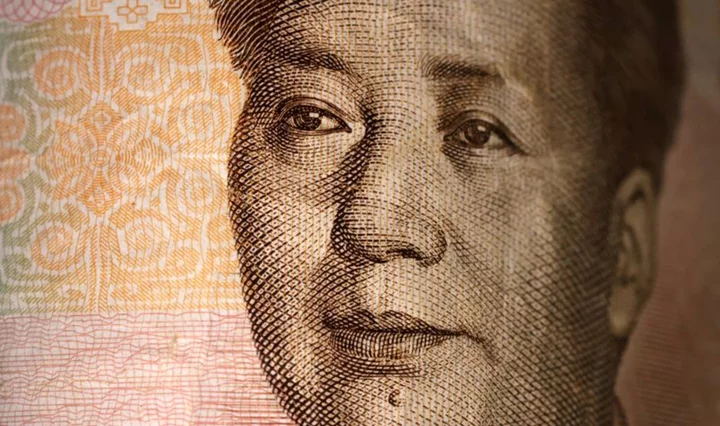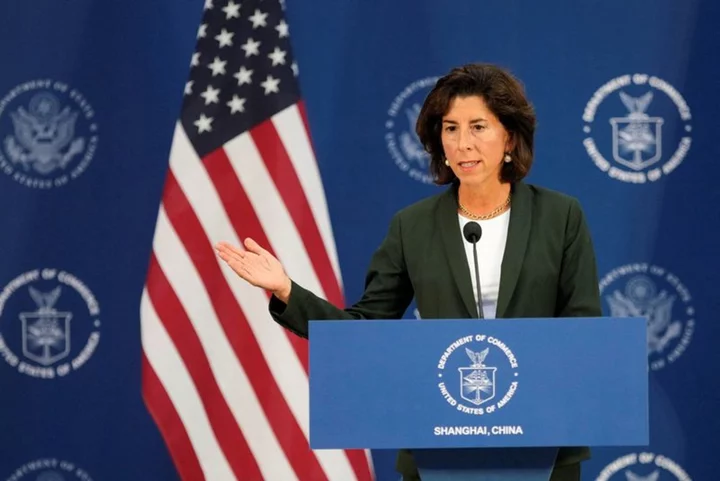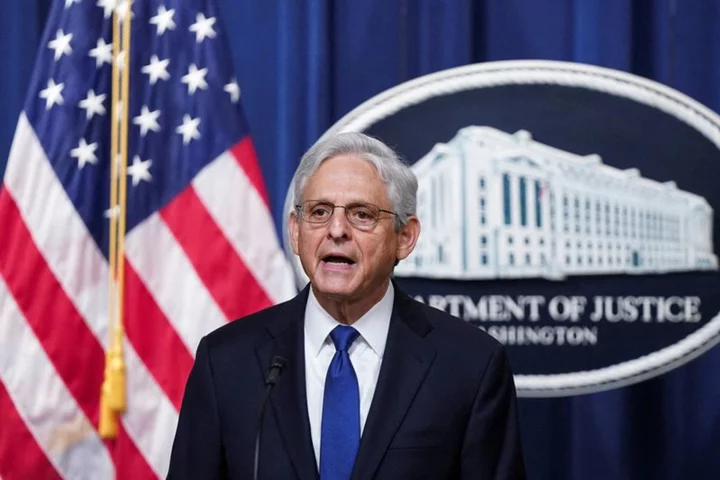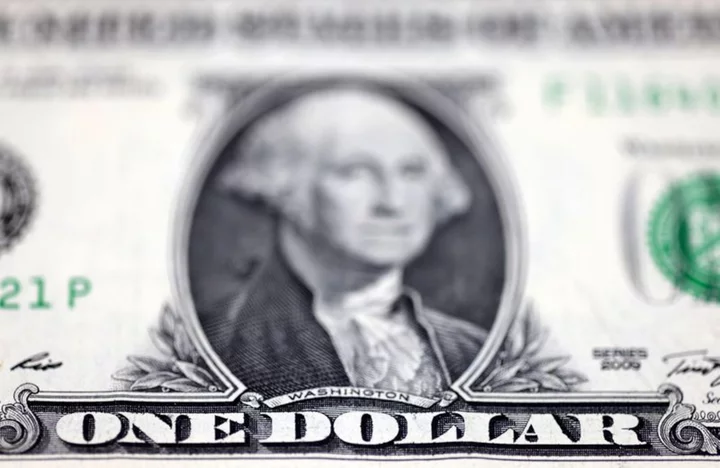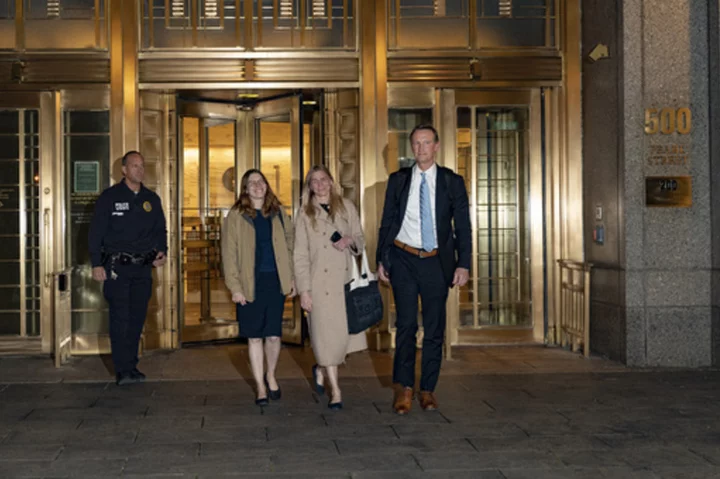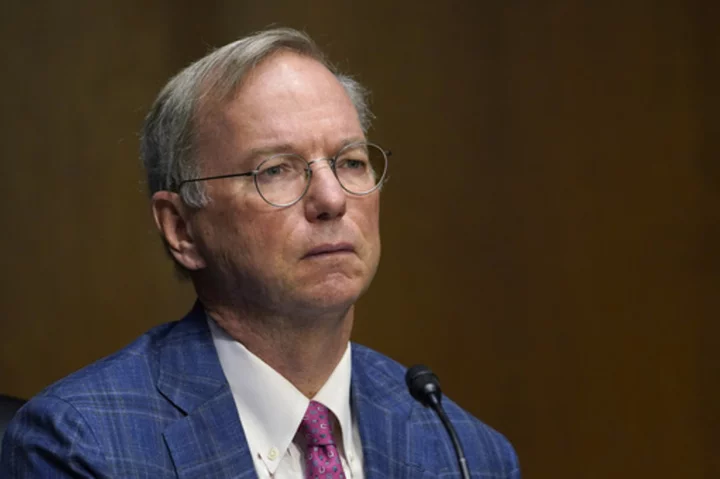By Paritosh Bansal
'De-risk, not decouple' are the new buzzwords for Western policy toward China, drawing skepticism from Beijing about whether there is any difference between the two. For businesses caught in the middle, the semantics are beside the point.
As tensions between Western allies and Beijing ratchet up over a litany of disputes, from sensitive technology to positions on Russia and Taiwan, companies with China exposure are worrying about contingency planning and conducting business amid proliferating regulatory landmines, according to interviews with nearly a dozen Western business executives in recent days.
Whether that involves a complete separation or something short of that depends on the business and its direct and indirect exposure to China, the executives said.
"There's enormous suspicion on the Chinese side and on the American side,” said Henrietta Fore, the former head of UNICEF who has served on boards of major companies, on the sidelines of a Women Corporate Directors’ conference. “I'd say 90% of CEOs are consumed with how to plan properly for this."
A former U.S. diplomat who is familiar with China added: "Everything is being questioned. Everything is in flux. And everyone is trying to minimize their dependencies."
The former diplomat and other executives, including CEOs and directors, requested anonymity to be able to speak freely about China-U.S. relations without having to worry about any repercussions.
The latest sign conversations are getting more urgent came last week when venture capital firm Sequoia said it would separate its Chinese and Indian businesses into two independent firms after concluding it had “become increasingly complex to run a decentralized global investment business.” Sources said geopolitics was one of those complicating factors.
For others, that's much harder to do. Some want to be in the Chinese market for the opportunities it presents. For some, alternatives such as moving supply chains entirely out of China are costly and not practical.
So while Sequoia took the route of separation, many other major business executives have traveled to China in recent weeks to meet staff, clients and officials. Executives including JPMorgan's Jamie Dimon, Citigroup's Jane Fraser and Tesla's Elon Musk made the trip.
One financial services CEO who also visited China earlier this year said he went to support his colleagues who have to deal with the uncertainties created by the current environment and to demonstrate to officials his firm's intention to remain there. At the same time, he's tried to keep a low profile, part of the reason he didn't want to be named in this column.
When asked about how he was planning for a scenario where there is a severe escalation in tensions, such as over Taiwan, he said he didn't know if there was a way to answer. The economic damage from war would be incalculable, he said. "It makes you always think that it's not possible."
SMALL YARD, TALL FENCE
Washington is putting export controls on sensitive technologies and encouraging Western companies to reassess supply chains.
At the same time, Beijing is trying to reduce its dependence on foreign know-how and increasing pressure on companies, with moves such as raids on consultancies and a new anti-espionage law. Last month, it barred operators of key infrastructure from buying from U.S. chipmaker Micron Technology.
In recent months, Western allies have tempered their tone, rejecting the idea of severing all economic ties with China in favor of a more nuanced approach that would not cut off trade but protect sensitive areas, such as military technology – the doctrine of "small yard and high fence."
But China has already been suspicious of the new approach, with Xinhua state news agency saying de-risking is "decoupling in disguise" and a senior diplomat telling the New Statement they'd be opposed if "de-risking means ridding China of the global industrial and supply chains, especially in key areas."
LIMITS TO DE-RISKING
One concern for businesses is how they can continue to make money while following all the rules, everywhere, especially the tricky ones around national security that are sometimes not fully spelled out.
With the new Chinese espionage law, for example, U.S. companies will have to contract out work such as competitor analysis and geospatial information because it might be too dangerous to do it in-house, the former diplomat said.
Companies are also reworking their IT systems, in some cases separating China from global operations, to prevent sensitive data from leaving the country, the former diplomat said.
But there are limits to how much they can de-risk. Companies are reworking supply chains to build redundancies and avoid single points of failure, but their dependence is so deep that they are unable to move entirely out of China, executives said.
Sometimes they work with their Chinese suppliers on the new facilities in other countries. And even when they do move some production, it's often more expensive and the quality is not as good, executives said.
The financial firm's CEO said there had not been enough focus on the costs of the new policy. He also worried rhetoric from Washington and Beijing was unleashing forces that could prove to be hard to control, even if the intent was to be balanced.
"The world doesn't do nuance very well," he said.
(Reporting by Paritosh Bansal; Editing by Anna Driver)

